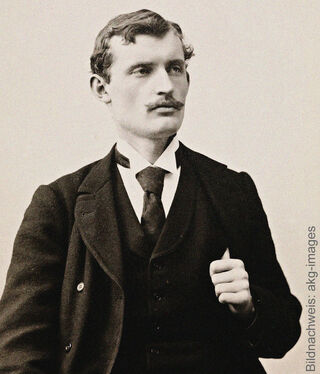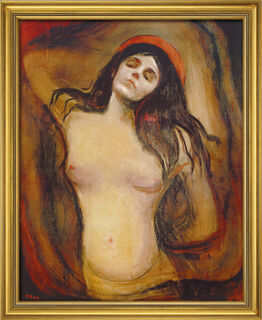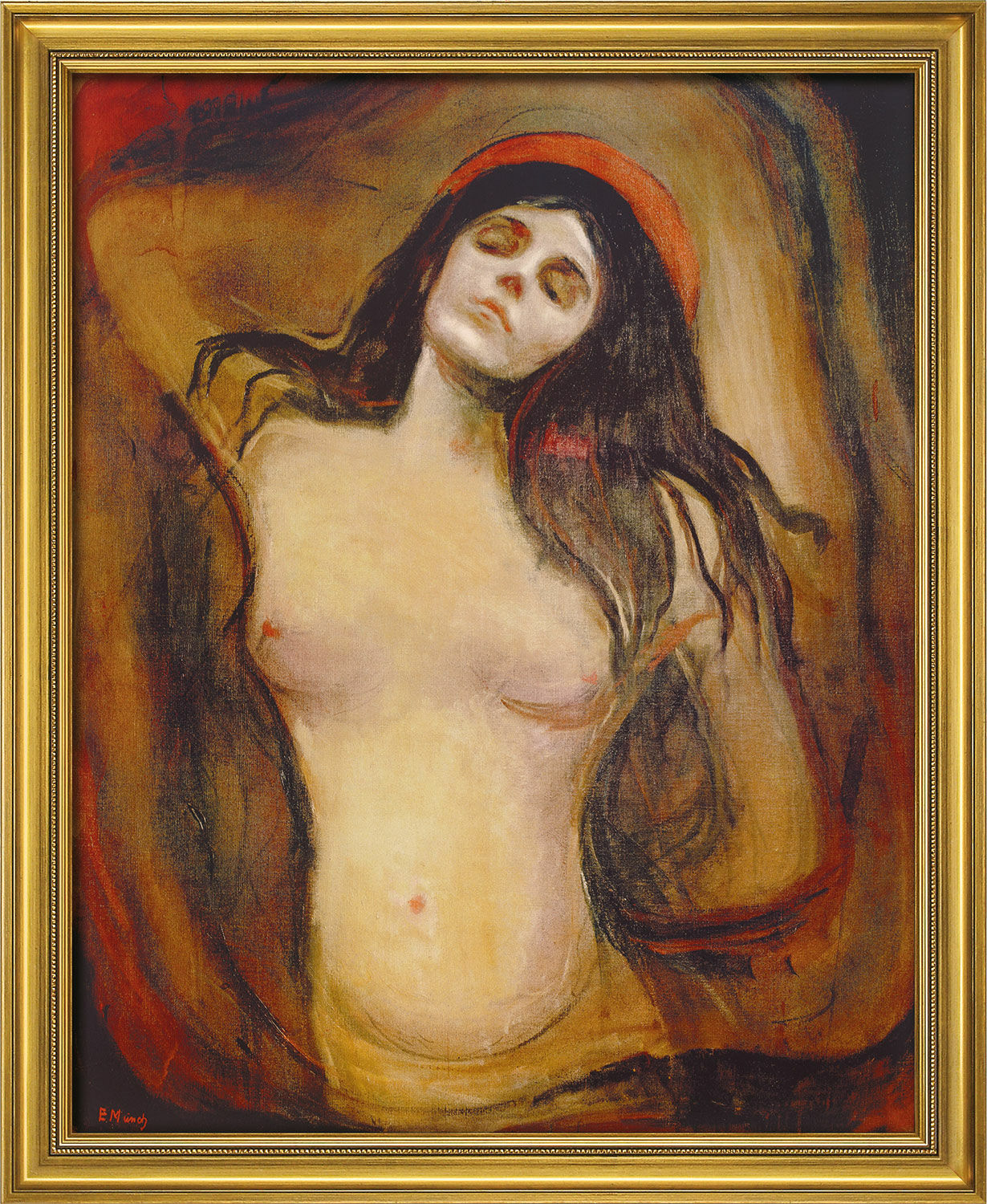Picture "Madonna" (1894), framed


Picture "Madonna" (1894), framed
Quick info
limited, 499 copies | numbered certificate | reproduction, Giclée print on canvas | artist's varnish | on stretcher frame | framed | size 80 x 64 cm (h/w)
Detailed description
Picture "Madonna" (1894), framed
Original: Munch Museum, Oslo. High-quality reproduction using the Fine Art Giclée process, worked by hand on an artist's canvas and mounted on a wooden stretcher frame. Motif surface with tactile and visible linen structure and additional hand-applied brush structure. Framed in a handmade golden brown streaked real wood museum frame. Limited edition 499 copies, with a numbered certificate on the back. Size 80 x 64 cm (h/w).

About Edvard Munch
1863-1944
The Norwegian painter and graphic artist Edvard Munch was one of the most important pioneers of Expressionism. His works revolve around the great human tragedies between Eros and death and he faced the deepest human feelings relentlessly and forcefully.
The oppressive mood of his most famous work, "The Scream", was typical of Munch, whose art often dealt with the existential questions of life, primarily fear, despair, melancholy, grief, death, love and jealousy. In this sombre choice of themes, one can certainly find references to his biography: Munch lost his mother and sister at an early age and struggled with depression and alcoholism throughout his life. Like hardly any other artist, Munch was able to give expression to his state of mind and to impressively bring the emotionally strong themes onto the canvas. Although he painted representationally, he made his motifs appear peculiarly deformed and used a very dynamic painting style with powerful colours. His innovative pictorial language and his way of symbolically depicting states of mind made Edvard Munch a pioneer of Expressionism and one of the most important painters of the 19th and 20th-centuries.
In the summer of 2004, Munch's two most famous paintings, "The Scream" and "Madonna", were stolen from the Munch Museum in Oslo in the most spectacular art theft of our time. The paintings were not secured until August 2006. "The Scream" - the world's best-known work of Expressionism - was so badly damaged in the process that it could not be exhibited again until today.
Artistic movement that replaced Impressionism in the early 20th century.
Expressionism is the German form of the art revolution in painting, graphic art and sculpture, which found its precursor in the works of Paul Cézanne, Vincent van Gogh and Paul Gauguin in the late 19th century. The Expressionists attempted to advance to the primal elements of painting. With vibrant, unbroken colours in large areas and with the emphasis on the line and the resulting targeted suggestive expressiveness, they fought against the artistic taste established by the bourgeoisie.
The most important representatives of Expressionism were the founders of "Die Brücke" (The Bridge): Ernst Ludwig Kirchner, Erich Heckel, Karl Schmidt-Rottluff, Max Pechstein, Otto Mueller and Franz Marc, August Macke and others.
Masters of Viennese Expressionism are Egon Schiele and Oskar Kokoschka. Among the sculptors, Ernst Barlach is the most famous.
Fauvism is the French form of Expressionism.
Giclée = derived from the French verb gicler "to squirt, spurt".
The giclée method is a digital printing process. It is a high-resolution, large-format printout on an inkjet printer with special different-coloured dye- or pigment-based inks (usually six to twelve). The colours are fade-proof, i.e. resistant to harmful UV light. They have a high richness of nuance, contrast and saturation.
The giclée process is suitable for art canvases, handmade and watercolour paper as well as for silk.






